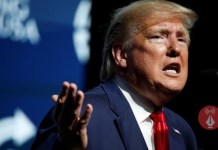As angry Nigerians Avenge Xenophobic Attack On Its Nationals
Sunday’s recurrence of xenophobic attacks in Pretoria and Johannesburg has invoke a reprisal attacks from Nigerians whose citizens are on report to have suffered more casualties.
A widespread riot from Nigeria targeted at giant South African businesses is said to have forced the South African government to recall it’s diplomatic staff from Abuja for fear of more attacks from angry Nigeria mobs.
On Tuesday, several staged attacks rocked South African businesses across several cities in Africa’s most populous nation. The attacks have since forced South Africa to temporarily close down all its missions in Nigeria.
The Nigerian Police has since also arrested several dozens of rioters but it appears that relations between the two big African countries is now troubled very deeply.
Even as most voices on the continent are condemning the attacks, South Africa’s Minister for International Relations, Naledi Pandor, has been justifying the attacks that have reportedly claimed at least 9 lives.
According to Pandor, the targeted attacks at Africans in South Africa are not xenophobic, but justified defense of South African homeland by South Africans.
“The question arises, and we must investigate what doe the law in South Africa says; how can a city in South Africa be 80% foreign nationals, that is dangerous, South Africans have surrendered their own cities to the foreign nationals the nation should discuss that particular question.
“You won’t find South Africans in other countries dominating a city into 80% because if we do not debate that, that naturally means that the whole South Africa could be dominated 80% by foreign nationals and the future President of South Africa could be a foreign national. We are surrendering our land, and it is not xenophobia to talk through, we fought for this land from a white minority, we cannot surrender it to foreign nationals.”
Naledi Pandor’s incendiary comments have however been at odds with condemnations by President Cyril Ramaphosa and Economic Freedom Fighters (EFF Leader), Julius Malema.
Mr. Malema has called the attacks, self-hate by Africans: When it is a white person in South Africa, undocumented, he’s called an investors, not only a white person, including Indians and Chinese but if it was my African brother we are going to be called guerre guerre because they don’t have papers. Self-hate, it must come to an end. If it means the EFF will be made to lose for that, let it lose votes. Lose votes on principle.”
Nigeria’s response to the South African attacks has not only been violent; Nigeria pulled out of the World Economic Forum (WEF) gathering in Cape Town, casting a cloud over initiatives to boost intra-African trade.
Nigeria has since also recalled its High Commissioner to South Africa, Ambassador Kabiru Bala.
Several African countries, including Ghana, have made arrangements for their nationals in South Africa to be flown out of the country as resentment continues to build for South African nationals across Africa.
Experts have said unemployment and lack of economic opportunities for South Africa’s youth are to blame for the recurrent xenophobic attacks on other African nationals in the country.
Between 2000 and 2008, at least 67 people died in what were identified as xenophobic attacks. In May 2008, a series of attacks left 62 people dead; although 21 of those killed were South African citizens.
In 2015, another nationwide spike in xenophobic attacks against immigrants in general prompted a number of foreign governments to begin repatriating their citizens.
A Pew Research poll conducted in 2018 showed that 62% of South Africans viewed immigrants as a burden on society by taking jobs and social benefits and that 61% of South Africans thought that immigrants were more responsible for crime than other groups.]
Between 2010 and 2017 the immigrant community in South Africa increased from 2 million people to 4 million people.
Meanwhile, Ghana’s Mission in South Africa has said that an invitation to Ghanaians living in that country to register for repatriation has been responded to by only some 300 people. This is in spite of the fact that there are over 600,000 Ghanaians living in South Africa.











